-
 bitcoin
bitcoin $87959.907984 USD
1.34% -
 ethereum
ethereum $2920.497338 USD
3.04% -
 tether
tether $0.999775 USD
0.00% -
 xrp
xrp $2.237324 USD
8.12% -
 bnb
bnb $860.243768 USD
0.90% -
 solana
solana $138.089498 USD
5.43% -
 usd-coin
usd-coin $0.999807 USD
0.01% -
 tron
tron $0.272801 USD
-1.53% -
 dogecoin
dogecoin $0.150904 USD
2.96% -
 cardano
cardano $0.421635 USD
1.97% -
 hyperliquid
hyperliquid $32.152445 USD
2.23% -
 bitcoin-cash
bitcoin-cash $533.301069 USD
-1.94% -
 chainlink
chainlink $12.953417 USD
2.68% -
 unus-sed-leo
unus-sed-leo $9.535951 USD
0.73% -
 zcash
zcash $521.483386 USD
-2.87%
How much does it cost to start mining crypto?
Starting crypto mining requires significant investment in hardware, electricity, and maintenance, with costs ranging from $500 for basic GPUs to over $10,000 for ASICs.
Jul 16, 2025 at 09:28 pm
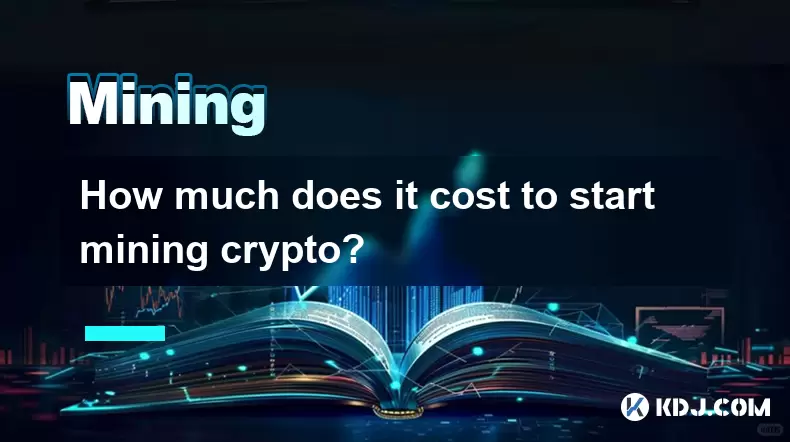
Understanding the Costs Involved in Starting Crypto Mining
Starting to mine cryptocurrency involves a variety of costs that can quickly add up. One of the most significant expenses is hardware. For serious mining, especially for Proof-of-Work (PoW) coins like Bitcoin or Ethereum, you will need specialized equipment such as ASIC miners or high-performance GPUs. These devices can range from $500 for entry-level GPUs to over $10,000 for top-tier ASIC machines.
Another crucial factor is electricity consumption. Mining rigs use a substantial amount of power, and depending on your location, this can significantly affect profitability. It’s important to calculate your local electricity rate per kilowatt-hour and estimate daily usage before investing. In some regions, high energy costs can negate any potential profit, making it essential to research beforehand.
Choosing the Right Mining Hardware
Selecting the right hardware is critical when starting crypto mining. There are three main types: ASIC miners, GPU rigs, and CPU mining setups. ASICs are designed specifically for mining certain cryptocurrencies and offer the highest hash rates but lack flexibility. On the other hand, GPU rigs provide versatility, allowing you to mine different coins by simply switching software.
When purchasing hardware, consider both initial cost and long-term efficiency. Efficiency is measured in joules per terahash (J/TH), and lower values mean less power consumption for the same output. Popular models include the Antminer S19 Pro for Bitcoin mining and the NVIDIA RTX 3090 for Ethereum-based coins. Always check reviews and compare performance metrics before making a purchase decision.
Software and Setup Expenses
Once you’ve acquired your mining hardware, you’ll need mining software to operate it effectively. Many open-source options exist, such as CGMiner, BFGMiner, and NiceHash, which support various types of hardware and mining algorithms. Some software may require a small fee or donation if used extensively.
Additionally, setting up your mining environment often requires an operating system optimized for mining, such as Hive OS or EthOS. These systems help manage multiple GPUs efficiently and monitor temperatures, fan speeds, and hashrates remotely. While some versions are free, premium licenses can cost between $10 and $50 annually, offering enhanced features and support.
Pool Fees and Network Considerations
Joining a mining pool is generally more profitable for individual miners than solo mining due to increased chances of earning rewards. However, mining pools typically charge a fee ranging from 0% to 4% of your earnings, depending on the service. Some pools offer lower fees in exchange for delayed payouts or additional services like auto-switching coins for better profitability.
Network considerations also play a role. You must ensure your internet connection is stable and fast enough to handle constant communication with the blockchain network. While standard broadband connections are usually sufficient, unstable or low-speed internet can lead to rejected shares and reduced income.
Cooling and Maintenance Costs
Mining generates a lot of heat, so proper cooling solutions are necessary to maintain performance and longevity of your hardware. This includes fans, air conditioning, or even custom-built cooling rigs. Depending on the scale of your operation, cooling can increase your electricity bill significantly.
Regular maintenance is also required. Dust buildup inside GPUs or ASICs can reduce efficiency and cause overheating. Cleaning your equipment every few months and replacing worn-out parts like fans or thermal paste adds to ongoing costs. Some miners invest in dedicated mining frames or racks to improve airflow and ease of access, which can cost anywhere from $50 to $300, depending on quality and size.
Additional Overheads and Hidden Costs
There are several overlooked expenses when starting crypto mining. These include initial setup tools, surge protectors, uninterruptible power supplies (UPS), and networking gear. A reliable UPS can prevent data loss or hardware damage during power outages and typically costs between $100 and $500, depending on capacity.
Insurance is another aspect to consider, especially if you're operating at scale. Protecting your investment against theft, fire, or electrical damage might seem unnecessary at first, but it can save thousands in case of an incident. Lastly, some jurisdictions impose taxes or licensing fees on mining operations, so always consult local regulations before launching your mining rig.
Frequently Asked Questions
Q: Can I mine crypto using my regular PC?A: Yes, but only for certain altcoins with low difficulty levels. CPUs and basic GPUs can mine coins like Monero or Ravencoin, but profits will be minimal compared to dedicated mining hardware.
Q: Is cloud mining cheaper than buying hardware?A: Cloud mining removes upfront hardware costs but often comes with high maintenance fees and contract risks. It's crucial to research providers thoroughly before committing funds.
Q: How much can I earn from mining Ethereum?A: Earnings depend on hashrate, electricity costs, and ETH price fluctuations. Using a calculator like WhatToMine can help estimate daily or monthly returns based on current conditions.
Q: Are there any free mining pools available?A: Yes, many mining pools offer free membership with optional premium upgrades. Examples include Ethermine, F2Pool, and Slush Pool, all of which support major cryptocurrencies without mandatory fees.
Disclaimer:info@kdj.com
The information provided is not trading advice. kdj.com does not assume any responsibility for any investments made based on the information provided in this article. Cryptocurrencies are highly volatile and it is highly recommended that you invest with caution after thorough research!
If you believe that the content used on this website infringes your copyright, please contact us immediately (info@kdj.com) and we will delete it promptly.
- Crypto Crossroads: Bitcoin Price Reacts to Fed Jitters Amidst Shifting Sands
- 2026-02-02 05:05:02
- Justin Sun, Tron, Manipulation Allegations: New Bitcoin Strategy Meets Lingering Controversy
- 2026-02-02 05:05:02
- Bitcoin Eyes $77K as Michael Saylor Reaffirms Unwavering Conviction Amidst Market Swings
- 2026-02-02 05:00:02
- Altcoin Season on the Horizon? ETH, XRP, SOL, ADA Face Potential 184x Gains Amidst Shifting Crypto Landscape
- 2026-02-02 05:00:02
- Bitcoin ETF News: Latest Updates Drive Investment and Market Dynamics
- 2026-02-02 04:50:02
- Rare Royal Mint Coin Error Fetches Over £100: The 'Fried Egg' £1 Coin Phenomenon
- 2026-02-02 04:45:01
Related knowledge

How to Earn Passive Income with DePIN Mining? (New Trend 2026)
Feb 01,2026 at 12:40pm
Understanding DePIN Mining Mechanics1. DePIN mining relies on real-world infrastructure participation rather than computational hashing. Users deploy ...
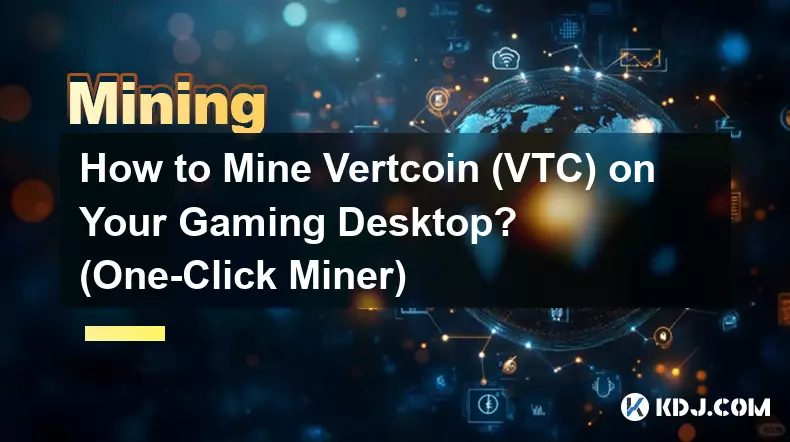
How to Mine Vertcoin (VTC) on Your Gaming Desktop? (One-Click Miner)
Feb 02,2026 at 03:39am
Understanding Vertcoin's Mining Algorithm1. Vertcoin uses the Verthash algorithm, which is intentionally memory-hard and designed to resist ASIC domin...
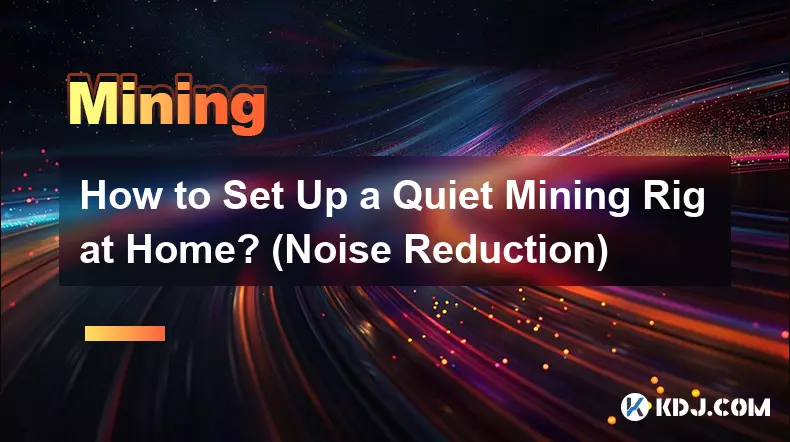
How to Set Up a Quiet Mining Rig at Home? (Noise Reduction)
Feb 01,2026 at 11:00pm
Acoustic Enclosure Design1. Use rigid, dense materials such as MDF or acoustic-grade plywood for the enclosure walls to block mid-to-high frequency no...
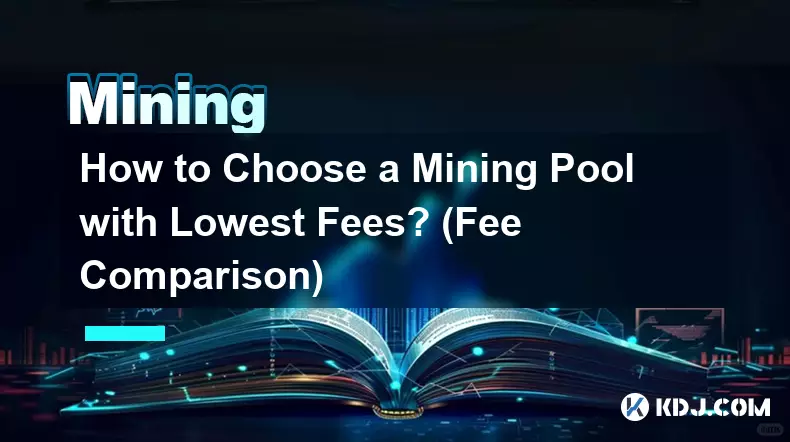
How to Choose a Mining Pool with Lowest Fees? (Fee Comparison)
Feb 02,2026 at 02:39am
Understanding Mining Pool Fee Structures1. Pool operators charge fees to cover infrastructure, maintenance, and administrative costs. These fees manif...

How to Mine Bitcoin on Mac (M1/M2/M3)? (Software Tutorial)
Feb 01,2026 at 07:19pm
Understanding Bitcoin Mining on Apple Silicon1. Bitcoin mining relies on solving cryptographic puzzles using computational power, and Apple’s M1, M2, ...
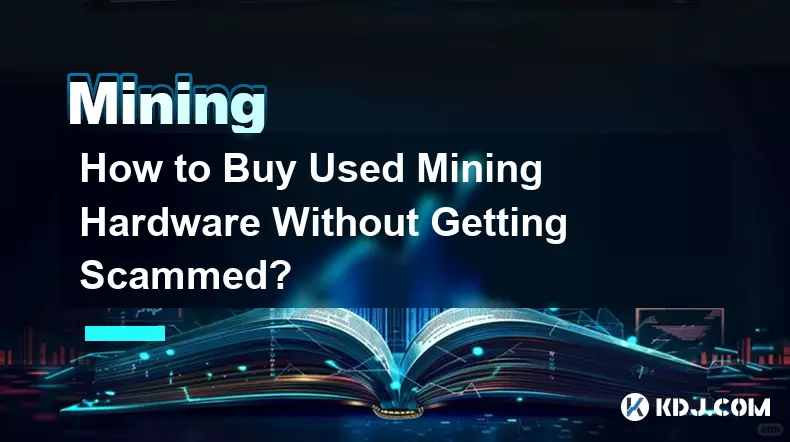
How to Buy Used Mining Hardware Without Getting Scammed?
Feb 01,2026 at 08:00pm
Research the Seller's Reputation Thoroughly1. Check archived listings and feedback on platforms like Bitcointalk forums, Mining Hardware subreddits, a...

How to Earn Passive Income with DePIN Mining? (New Trend 2026)
Feb 01,2026 at 12:40pm
Understanding DePIN Mining Mechanics1. DePIN mining relies on real-world infrastructure participation rather than computational hashing. Users deploy ...

How to Mine Vertcoin (VTC) on Your Gaming Desktop? (One-Click Miner)
Feb 02,2026 at 03:39am
Understanding Vertcoin's Mining Algorithm1. Vertcoin uses the Verthash algorithm, which is intentionally memory-hard and designed to resist ASIC domin...

How to Set Up a Quiet Mining Rig at Home? (Noise Reduction)
Feb 01,2026 at 11:00pm
Acoustic Enclosure Design1. Use rigid, dense materials such as MDF or acoustic-grade plywood for the enclosure walls to block mid-to-high frequency no...

How to Choose a Mining Pool with Lowest Fees? (Fee Comparison)
Feb 02,2026 at 02:39am
Understanding Mining Pool Fee Structures1. Pool operators charge fees to cover infrastructure, maintenance, and administrative costs. These fees manif...

How to Mine Bitcoin on Mac (M1/M2/M3)? (Software Tutorial)
Feb 01,2026 at 07:19pm
Understanding Bitcoin Mining on Apple Silicon1. Bitcoin mining relies on solving cryptographic puzzles using computational power, and Apple’s M1, M2, ...

How to Buy Used Mining Hardware Without Getting Scammed?
Feb 01,2026 at 08:00pm
Research the Seller's Reputation Thoroughly1. Check archived listings and feedback on platforms like Bitcointalk forums, Mining Hardware subreddits, a...
See all articles










































































